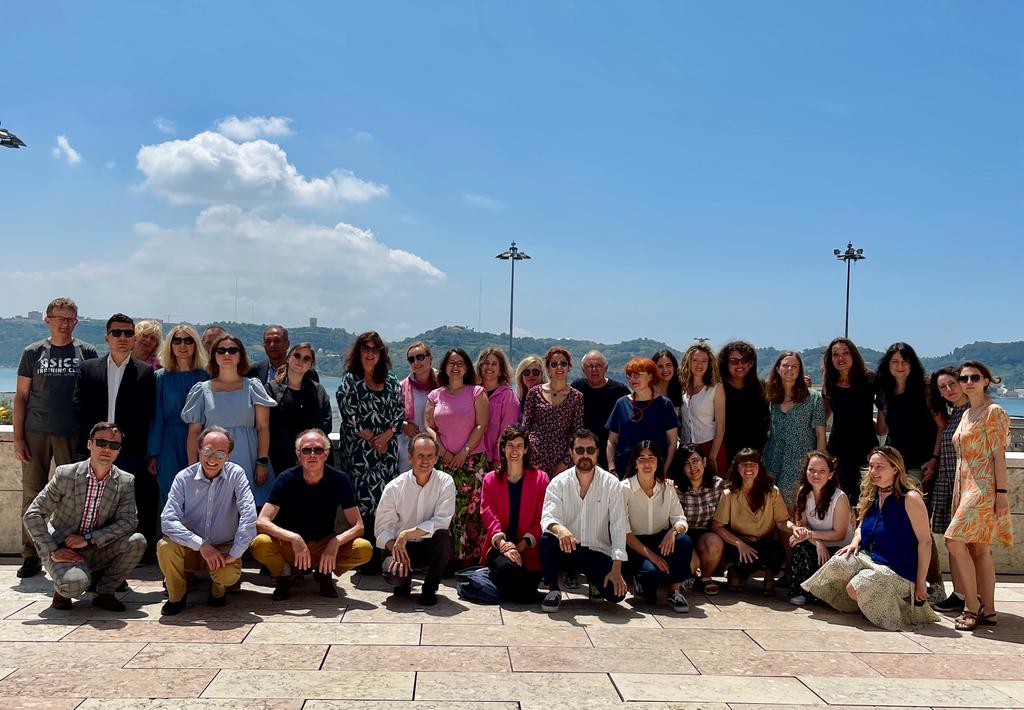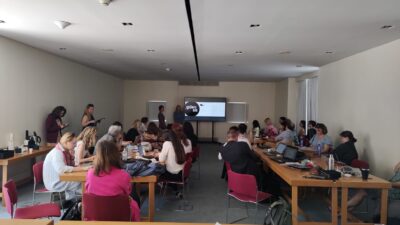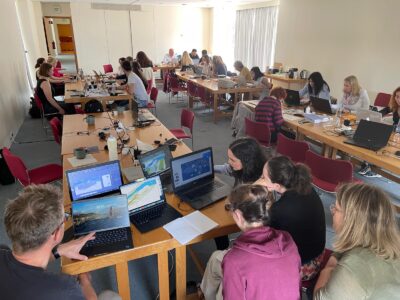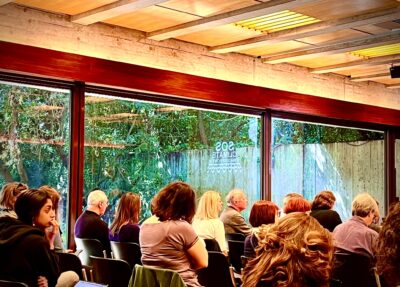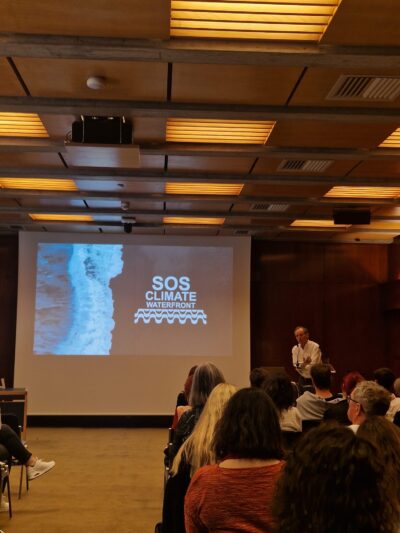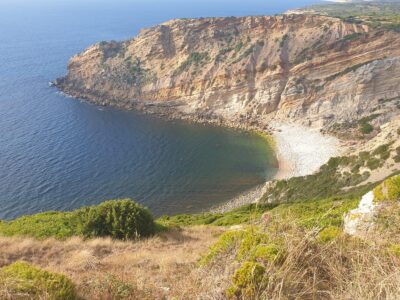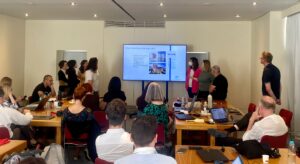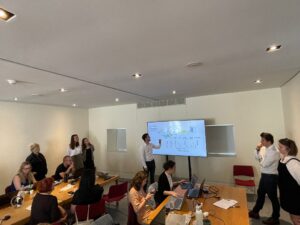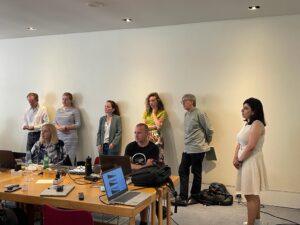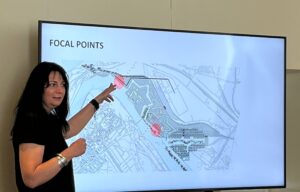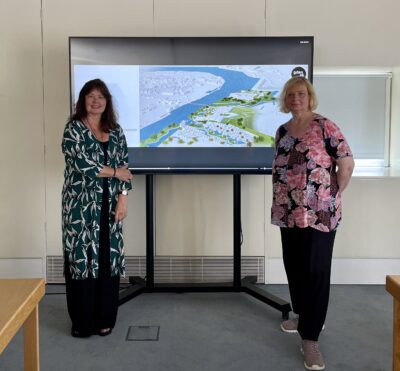For 30 days, between the enchanting River Tagus and the vast Atlantic Ocean, Lisbon played host to the “SOS Climate Waterfront” workshop. Organized by Universidade Lusófona – Centro Universitário Lisboa, this international gathering brought together over 30 participants from various countries. The workshop aimed to address the pressing issue of climate change on waterfront areas in Europe, fostering interdisciplinary collaboration to devise innovative urban plans. After weeks of intensive research and design, the teams presented their proposals, showcasing the importance of sustainable solutions in the face of environmental challenges.
SOS Climate Waterfront Project:
S.O.S Climate Waterfront is a five-year interdisciplinary project spanning from 2018 to 2023. It focuses on exploring the impact of climate change on waterfronts across Europe. The initiative brings together professionals from different fields to devise sustainable strategies for infrastructure and urban planning. By combining geographical, historical, and social contexts, the project aims to create resilient solutions that mitigate the effects of climate change on coastal areas.
The Importance of Interdisciplinary Work:
Throughout the workshop, one recurring theme emerged—the significance of interdisciplinary work. The participants emphasized the need for collaboration among architects, urban planners, and other experts to address the multifaceted challenges of urban planning in the face of climate change. By bridging the gaps between professional silos, a holistic and sustainable approach can be achieved. The workshop provided a platform for diverse groups to develop open and progressive solutions, considering cultural factors that influence sustainable practices.
Conference on Resilience, Water, Culture, and Climate:
One highlight of the workshop was the three-day conference held at the prestigious Fundação Calouste Gulbenkian. Prominent speakers gathered to discuss the subject of Sustainable Open Solutions S.O.S Climate Waterfront. Pedro Ressano Garcia, the project coordinator, led the conference, alongside researchers Maria Rita Paiz and Bernardo vas Pinto. The conference explored topics such as resilience, water management, cultural perspectives, and climate change. Elisavet Papageorgiou from Intercult, presented international and local projects that showcased the power of art in raising awareness about environmental challenges and fostering sustainable cities.
Site Visit:
The workshop included site visits to gain a deeper understanding of the waterfront areas under consideration. Setubal provided an opportunity to explore the Portuguese coastal evolution and discover its natural and cultural heritage.
Projects’ Focus:
The Stockholm project aims to revitalize the Frihamnen harbour by creating a diverse neighborhood that combines industrial, residential, and cultural activities. Innovative solutions include repurposing cruise ships as affordable housing, enhancing biodiversity through connections with surrounding nature, restoring historic landmarks as vibrant social hubs, and improving transportation networks for better connectivity and accessibility to Stockholm’s archipelago and national park.
The Rome group focused on the area of Piazza Mancini, aiming to strengthen the connection between nature and urban spaces while considering flood risks and heavy rainfall. They highlighted the need for a broader spatial scope and the importance of green corridors and urban greening to address heat islands and biodiversity.
Team Lisbon, known as “Uncovering the river,” proposed a bold solution for Cascais. They envisioned uncovering the river and transforming the surrounding environment with cultural activities, public spaces, and beautiful landscapes. By reshaping the land development, their proposal aimed to increase the areas capable of absorbing rainwater while preserving existing buildings.
The Thessaloniki project focuses on restoring the ecological values of the delta and marshlands in the western waterfront, aiming to combat pollution and improve social and environmental conditions in the surrounding areas. The proposed solutions include creating adaptable ponds to handle flooding, renaturalizing the Dendropotamos river, reshaping the main highway for events, introducing art events and a living lab, and promoting CO2 storage, reduction, and circularity through green corridors and sustainable energy solutions.
Gdańsk team focuses on the Wisłoujście Fortress, situated at the mouth of the Vistula riverbed, and aims to preserve the historical site while creating a network of green and blue public spaces that coexist with the fortress and industrial structures. The project also includes the development of a car-free residential area, floating green structures to improve the water, and the construction of a pedestrian and cycle bridge to connect the area with Nowy Port and the Westerplatte, offering better accessibility and recreational opportunities.
Communication and Stakeholder Engagement:
While time constraints limited the depth of the workshop’s impact, the real dialogue with stakeholders begins after the workshop. Dissemination of the results, which will occur in partner countries over the coming months, is crucial for creating real change. The partner channels are numerous, among others River// Cities platform foundation represented in Lisbon by President Iwona Preis and Magdalena Zakrzewska – Duda who contributed to the final publications.
While technology plays a pivotal role in communication, it is equally important to convey the project’s vision and beliefs alongside factual plans. Given the urgent need to address climate change, wider public awareness and engagement are paramount. The digital exhibition of our findings is coming soon!
